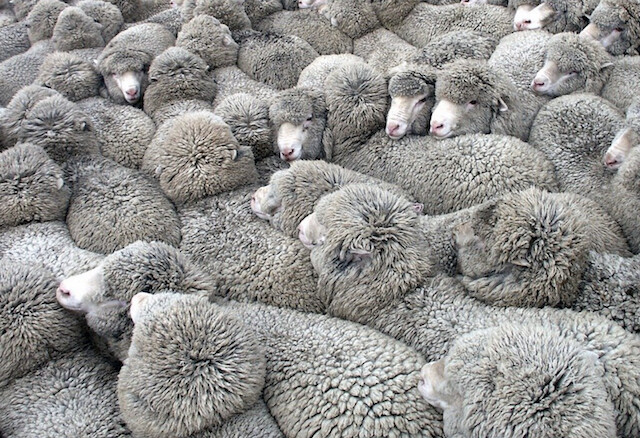
A few years ago, I gave a presentation about emotions. I used the word normal to describe what was typical for most people. When the session was over, I was stunned to discover I had triggered a member of the audience into a near meltdown.
That was the first time I stopped to consider what an emotion-packed word, normal can be.
When I was first diagnosed with clinical depression, my husband and in-laws cautioned me not to tell anybody. They were afraid I would be labelled as crazy or abnormal.
This is what happened to the lady in my audience. She had struggled with mental illness and only had to hear the word normal to be transported back into a time when she believed she wasn’t.
Although I wasn’t talking about people not being normal, she was unable to hear anything I was saying because of her emotions.
It is only in recent times that we are considering the possibility that being different might be a strength and a blessing.
In evolutionary times, it benefited people to fit in and be like everyone else. You needed to be part of a group if you were going to survive.
I don’t want anyone else to have the same experience as the woman in my audience, so let me assure you, I don’t want to spend my time discussing whether any of us are normal. Instead I want to refer to normal as a noun.
What is your normal?
Dictionary.com defines normal as the usual, average, or typical state or condition.
What do you do every day? Do you have daily or weekly routines? What is important to you? How do you spend your free time? What makes you feel energized?
This is a conversation that is becoming more relevant with every passing day. The pandemic has ensured that what was normal in your life at the beginning of the year, is unlikely to be your normal, today.
Every time you or your life changes, you will consciously or unconsciously adjust your usual routines. If you start a new job, move to a new city, or change your marital status, modifications need to be made.
Some people resist change and cling as much as possible to their old way of doing things. That isn’t always best, but it’s comfortable.
Many people who have extended stays in institutions like hospitals, are afraid to go home. They have been there long enough for its routines to be their new normal.
Although the sudden unchartered territory of the pandemic felt scary when it started, I’m willing to bet you are finding you’ve got used to physical distancing.
An elderly friend decided to go to Rona to get something for her garden. It was the first time she has left her home in weeks. She told me how shaky and unsettled she felt doing something that was perfectly normal only a couple of months ago.
Until a vaccine for COVID-19 is found, many of your old ways of life will be put on hold.
Even when restaurants are open, they will probably have vastly reduced seating, or plexiglass between tables or booths. Lines of people waiting to enter a store is likely to remain commonplace for the months ahead.
I suspect even when we can gather in large groups again, some parts of the old normal will have disappeared forever.
Small changes require small shifts. Big transformations need you to pivot in bigger ways. The pandemic has caused major alterations. The opportunity it is providing is just as immense.
You have the chance to consciously influence what your new normal will look like.
What are you enjoying about your current lifestyle? What are the biggest challenges? What can’t you wait to do again?
Gather as much information as possible and then decide what you want to keep and what feels good to release when a vaccine is found.
If you love having more time as a family, consider not enrolling your kids in so many extracurricular activities. If you are enjoying a slower pace of life, practice being more discerning about what you choose to do with your time.
Your world will always be influenced by things beyond your control. This conversation is about crafting the life you want for yourself within those unmovable boundaries.
What do you want your new normal to look like? If you can imagine it, you can create it.
This article is written by or on behalf of an outsourced columnist and does not necessarily reflect the views of Castanet.

 'Fearless' dog survives fall
'Fearless' dog survives fall Green Party deputy jailed
Green Party deputy jailed Report into crash released
Report into crash released Facial recognition at border?
Facial recognition at border? PM ups attacks on Poilievre
PM ups attacks on Poilievre CRA will get the money: PM
CRA will get the money: PM Ukraine uses new missiles
Ukraine uses new missiles Biden signs war aid measure
Biden signs war aid measure New US rules for airlines
New US rules for airlines  BoC officials split on rate cut
BoC officials split on rate cut Big loss for Boeing
Big loss for Boeing  Metro sales edged higher
Metro sales edged higher Vees dominating Vipers
Vees dominating Vipers Warriors snakebitten in loss
Warriors snakebitten in loss Iginla off to Europe
Iginla off to Europe Coachella fined $28K
Coachella fined $28K Those are her nipples
Those are her nipples Kanye to launch porn studio
Kanye to launch porn studio






